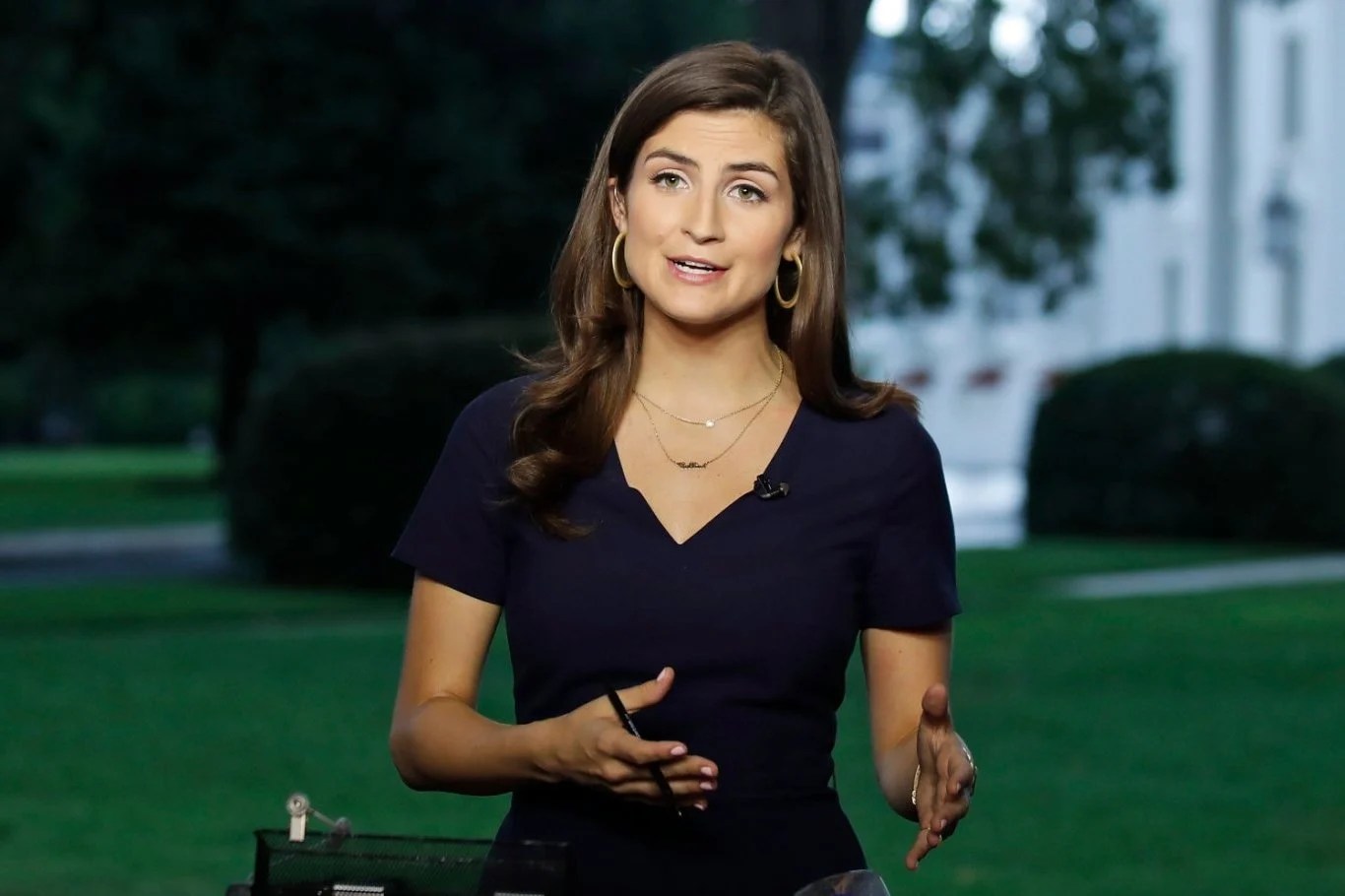Kaitlan Collins: A Shocking Turn Of Events
In the world of journalism, few names have garnered as much attention as Kaitlan Collins. Known for her incisive reporting and fearless approach, Collins has become a prominent figure in political news coverage. However, recent rumors about her being fired have sent shockwaves through the media landscape, leaving many wondering about the implications of such a move. What could this mean for her career? And how does it reflect the current state of media today?
The speculation surrounding Kaitlan Collins being fired has sparked a myriad of discussions among fans, colleagues, and industry insiders alike. As a top reporter for CNN, her contributions have been significant, particularly in covering high-stakes political events. Yet, the news of her potential dismissal raises critical questions about the challenges faced by journalists in an ever-evolving media environment. Are journalists becoming more vulnerable to the whims of their employers? Could this be a reflection of larger systemic issues within the industry?
As we delve deeper into the topic of Kaitlan Collins being fired, it’s essential to look at her career trajectory, the context of her reporting, and the potential fallout from such an event. What does it mean for young journalists looking to make their mark? And how should we view the responsibilities of media organizations in supporting their staff? Join us as we explore these questions and more, shedding light on the impact of Kaitlan Collins in journalism and the implications of her being fired.
Who is Kaitlan Collins?
Kaitlan Collins is an American journalist and CNN White House correspondent known for her in-depth reporting and coverage of political events. Born on April 7, 1992, in Prattville, Alabama, Collins began her career in journalism while attending the University of Alabama, where she earned a degree in political science and journalism. She joined the Daily Caller in 2014 and quickly rose through the ranks, eventually becoming the White House correspondent for CNN in 2017.
What Led to Kaitlan Collins' Rise in Journalism?
Collins’ career trajectory has been marked by significant milestones that showcase her talent and determination. Some key points include:
- Joining the Daily Caller as a reporter and quickly advancing to the role of White House correspondent.
- Transitioning to CNN in 2017, where she became a prominent voice in political journalism.
- Covering major events, including presidential campaigns, international summits, and breaking news stories.
- Becoming a member of the White House Correspondents' Association.
What Are Kaitlan Collins' Personal Details?
| Detail | Information |
|---|---|
| Name | Kaitlan Collins |
| Date of Birth | April 7, 1992 |
| Birthplace | Prattville, Alabama |
| Education | University of Alabama (Political Science and Journalism) |
| Occupation | Journalist |
| Employer | CNN |
Why Was Kaitlan Collins Fired?
The rumors of Kaitlan Collins being fired have circulated widely, leading to various speculations about the reasons behind this development. While official statements have yet to clarify the situation, several factors may contribute to such a drastic decision.
Could It Be Due to Controversial Reporting?
One possibility is that Collins’ reporting style or the topics she covers may have drawn criticism from higher-ups. Journalists often find themselves in precarious situations when their stories challenge powerful figures or institutions. The pressure to conform to certain narratives can lead to conflicts between journalists and their employers.
Is It a Reflection of Broader Industry Trends?
The media landscape is changing rapidly, and traditional news organizations face mounting pressures to adapt. The rise of social media, the decline of print journalism, and the increasing polarization of news can create a challenging environment for journalists. If Kaitlan Collins were indeed fired, it might symbolize a broader trend in which media companies prioritize ratings and viewer engagement over journalistic integrity.
What Do Experts Say About Kaitlan Collins Being Fired?
Media analysts have weighed in on the implications of Collins’ potential dismissal. Some key points include:
- The importance of supporting journalists who seek to uphold high standards of reporting.
- The need for media organizations to balance commercial interests with journalistic integrity.
- Concerns over the chilling effect on other journalists who may fear repercussions for their reporting.
How Has the Public Reacted to the News of Kaitlan Collins Fired?
The public reaction to the news of Kaitlan Collins being fired has been mixed. Many supporters have expressed outrage, voicing concerns about the treatment of journalists in today's media environment. Social media platforms have become a battleground for discussions on freedom of the press and the importance of independent journalism.
Are There Calls for Solidarity Among Journalists?
In light of the rumors surrounding Collins, many journalists have come together to express their solidarity. The situation has ignited conversations about the need for media professionals to stand united against censorship and threats to journalistic freedom.
What Does This Mean for the Future of Journalism?
The potential firing of Kaitlan Collins raises significant questions about the future of journalism as a whole. If established journalists face repercussions for their reporting, what does that mean for the next generation of reporters? Will they be deterred from pursuing challenging stories? The implications could be far-reaching, affecting not just individual careers but the integrity of the media landscape.
In Conclusion: What Lies Ahead for Kaitlan Collins?
As the dust settles on the rumors of Kaitlan Collins being fired, the future remains uncertain. Will she continue her path in journalism, or will this event mark a turning point in her career? Whatever the outcome, one thing is clear: Collins has made a significant impact on the media landscape, and her journey will undoubtedly continue to resonate in discussions about the state of journalism today.
Article Recommendations
- Juliette Norton
- Yasmin Bleeth
- Jayson Christopher Tatum Jr Mom
- Justina Valentine Boyfriend
- Rege Jean Page And Emily Brown
- Jessica Aldean Age
- Amy Lynn Bradley
- Scarlett Pomers Married
- Tyler James Williams Wife
- Vijay Varma First Wife




